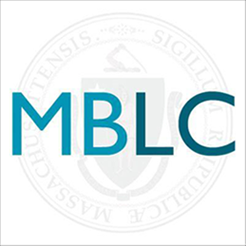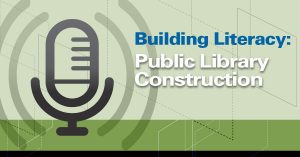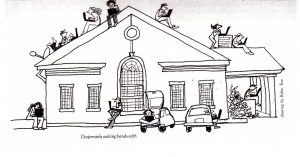
MBLC Service Update
May 13, 2020
Past Updates
April 1, 2020
April 8, 2020
April 15, 2020
April 22, 2020
April 29, 2020
May 6, 2020
As we work together to get through the current reality, the MBLC will provide regular updates on MBLC services and other statewide issues. Please let us know if there’s info you’d like us to cover—we’ll include it if we are able. Stay well.
State Reopening Advisory Board
Interview with Mass. Reopening Advisory Board Member Easthampton Mayor LaChapelle
News and information from the Reopening Advisory Board
Summary of comments from the MLS and MBLC listening sessions are on the MLS Resource Guide.
State Aid- Reopening Survey
Contact: Liz Babbitt
Several library directors have asked us if we will be adding re-opening questions to the COVID19 survey; others wanted to know if we were planning a new survey. No one realized when we created the original form how nuanced the process of reopening would be and there are some limits to adding questions to an existing LibWizard form so we made the decision to create a new survey.
The re-opening survey can be completed via a new LibWizard form This will be shared with the library community in a Google spreadsheet titled “COVID19: Re-opening Public Libraries Survey”.
We understand that COVID19 will continue to be a serious threat to public health and that your plans may change as the situation evolves so we will NOT be creating a version of this survey for the public UNTIL libraries have started opening.
You can still update the original COVID19 Closure form via this LibWizard link: https://mblc.libwizard.com/f/covid-19 . I’ll continue to update that Google sheet for the next few weeks.
Your library info in the Library Directory on public portal
Contact: Paul Kissman
Some of the information that libraries have provided to Liz on the COVID19 Closure form is being integrated into the Library Directory on the public portal. Here we use Canton as example of what the public sees when it looks for library info on libraries.state.ma.us. This information will become even more important as libraries begin opening and offer varying degrees of service. This information will also be included on the Library Directory on the agency website.
CARES ACT Funds
Contact: Lyndsay Forbes
Celeste Bruno
The MBLC will soon announce grant opportunities that focus on virtual programming and mental health. These grant opportunities were developed collaboratively by MBLC and MLS and were based on the needs expressed during the weekly check-ins conducted by Christi Farrar (MLS) and April Mazza (MLS) with hundreds of children’s, YA, and school librarians.
Also coming very soon: Availability of more Beanstack grants
Construction-The Massachusetts Public Library Construction Program (MPLCP)
Contact: Lauren Stara
Andrea Bunker
Construction Bond funding/ Bill H.4154
The IT Spending Bond Bill that contains library construction funding is being discussed today.
From State House News:With dependence on technology rising, House Democratic leaders have set their sights on legislation to borrow more than $1 billion for information technology and cybersecurity upgrades as one of the next major bills that could emerge for a vote. Speaker Robert DeLeo’s office informed members of his party on Monday to be prepared to discuss a committee rewrite (H 4039) of Gov. Charlie Baker’s IT bond bill during a remote caucus on Wednesday. The Baker administration has been pressing for the bill’s passage for months. The speaker’s office did not outline explicit plans or a timeline for consideration of the bill by the full House, but the bills that are the focus of caucus talks often emerge for House consideration shortly thereafter. Baker filed his $1.15 bill in April 2019, describing it as necessary to protect Massachusetts from cyberattacks and to improve how constituents interact online with their government for health care, housing and more. The House Bonding, Capital Expenditures and State Assets Committee recommended the bill with an amendment in October, and it has been pending in the House Ways and Means Committee since then.
NEW! MBLC Construction Podcast!
Episodes:
Sustainability and Building Performance: An Interview with Building Evolution Corporation
Designing for Sustainability: An Interview with Finegold Alexander Architects
Preservation and Disaster Recovery
Contact: Evan Knight
A note of caution about UV light disinfecting products.
UV light radiation indeed can disinfect against viruses, however, the radiation levels must achieve certain thresholds of intensity and certain thresholds of exposure time. There are several systems considered effective for medical device and whole-room virus sterilization, such as those in use at large hospitals. But please be hesitant to consider purchasing a small UV radiation devices for the sterilization of your library materials, as they are not clearly shown to be as effective in disinfecting SARS-CoV-2, as advertised. Here are some questions and issues to look for in any UV disinfecting machine:
- What levels of irradiation does the product reach? What is the required exposure time? When you look into product documentation, make sure to find the specific wavelengths and intensity of UV radiation for effective use. Do they meet the thresholds required to disinfect analogous viruses of SARS-CoV-2? (No product should claim that they have demonstrably disinfected SARS-CoV-2 specifically because that research, as far as I, and peers from the preservation community, can tell, has not been released from these products. I’ve submitted a request for more information about the required thresholds of wavelength and intensity for SARS-CoV-2 from the REACH group (IMLS/OCLC/Battelle).) Some products have tested their efficacy against bacteria, such as E.coli, which may react very differently to radiation than viruses.
- There should be obvious directions, with lots of details, about the safe operation of any disinfecting product. Books and materials do not put themselves in the machine, after all.
In my outreach with preservation peers, the Library of Congress Preservation Directorate could not comment on any specific products, but was comfortable sharing with us that at this point, they “are not using UV systems at present, and that [their] own planning focuses on safe processes (hygiene, quarantine, contact tracing).”
PJ Drive
Contact: Rachel Masse
Matt Perry
Way back in March we asked everyone to please hold PJs in place. The warehouses were getting full, DCF workers were getting overwhelmed, and librarians weren’t comfortable handling pajamas.
The big question now is once staffs are able to get back into the buildings what do we do with the PJs now?
For libraries that still have PJs, is it possible to donate the pajamas locally?
If you can’t donate locally, please hold them for 2 weeks after delivery opens up again. If you have questions about which warehouse you should send your pajamas to please contact Rachel.
Matt is working with MLS and Cradles to Crayons to get the PJs that are currently in warehouses picked up.
This is probably the last thing on your mind but if you haven’t submitted your totals to Rachel please do so. Also if some pajamas already went out please give your best estimate.
Lastly the winners most likely won’t be announced until sometime in September since schools also participate.
Promotion/Summer Library Program
Contact: Celeste Bruno
Matthew Perry
Rachel Masse
Paid advertising for Library eBooks and Audiobooks and virtual programming began yesterday. They will run through the middle of June. We’re targeting two audiences:
Parents and caregivers of children under six and middle-income residents under the age of 55
Type of ads:
Pre-roll advertising (video)-these are short ads that run before a video.
OTT streaming spots (video) that run during episodic content—OTT stands for Over-the-top. They’re ads that run before streaming content.
Digital banner ads
Facebook, Instagram, and Snapchat social ads
Video Library (for kids and teens)
Video site
Upload your video directly or email it to Celeste
SUMMER: Please submit your Summer Success Story, even if you can’t do the challenge. Please omit any identifying info
State Aid To Public Libraries
Contact: Liz. Babbitt
Uechi Ng
Mary Rose Quinn
ARIS Workshops
State Aid will be hosting eight ARIS (Annual Report Information Survey) workshops online in June via Zoom. All sessions will take place from 10:00 am -12:30 pm. We’ve added half an hour to each session to allow for additional questions you may have. Registration will be through the MBLC Calendar
The dates are:
June 3
June 10
June 11
June 16
June 17
June 18
June 24
June 25
Reporting Deadlines for FY2021:
ARIS will open as usual on July 1st but the deadline will be extended until October 2nd to allow libraries and networks more time to gather statistics. The Financial Report and State Aid Compliance Application will open August 7th as scheduled and also close on October 2nd. Municipalities applying for a waiver of the FY2021 MAR will have until November 6th to complete additional paperwork.
PLEASE NOTE: All dates are based on current information we have about COVID19 and the Governor’s State of Emergency. We will reassess deadlines if necessary but they will not be earlier than stated above.
Library closure/status info
Liz Babbitt continues to update the Google Docs for both libraries and the public.
Links to the documents:
For Patrons
For Librarians
Changes and updates can be submitted through the LibWizard form
for both libraries and the public.
Trustees and Friends
Trustees and Friends
Contact: Maura Deedy
Rob Favini
There are 3 Virtual Trustee Orientations scheduled for May.
Description: Are you a new library trustee eager to learn about your new, and very important, role? A “seasoned” board member looking for a refresher course? Trustee Orientations are a great opportunity to meet key staff at MBLC who work with trustees, to learn more and ask questions about your roles and responsibilities as a member of a library board. At each session we cover board responsibilities, library funding and State Aid, state laws with relevance to libraries, and how to be an effective advocate for libraries. Time is included for questions and answers. Orientations are aimed at new trustees, and all trustees and library directors are welcome to attend.
Date: Thursday, May 14, 2020
Time: 6:00pm – 8:00pm
Register
Tuesday, May 19, 2020
10:00am – 12:00pm
Register
Wednesday, May 20, 2020
10:00am – 12:00pm
Register




